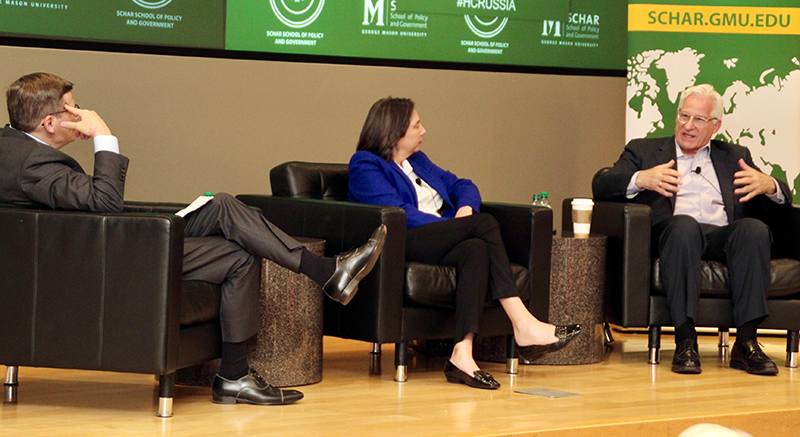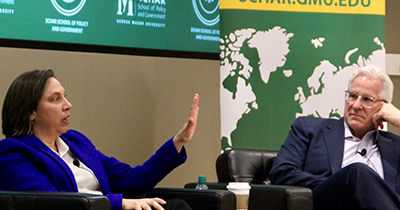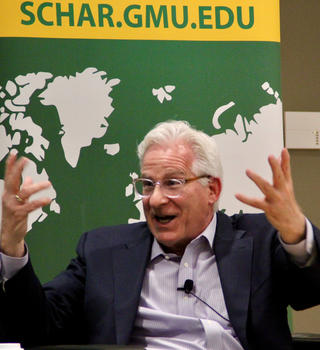

With some 100 spectators in attendance at George Mason University’s Van Metre Hall and another 600 viewing via livestream, moderator Michael Morell wasted no time Tuesday night addressing the elephant in the room: What did Putin know and when did he know it regarding last Friday’s terror attack on the Crocus City Hall venue that left 139 people dead?
The event, “Assessing Russia,” was hosted by the Schar School of Policy and Government’s Michael V. Hayden Center for Intelligence, Policy, and National Security, and featured two panelists who spent significant amount of their careers studying Russia.
If anyone could answer the question about Vladimir Putin’s foreknowledge of the attack, it would be CNN national security contributor Beth Sanner, former deputy director of national intelligence and a former presidential daily intelligence briefer, and John Sipher, former Russian operations leader of the CIA.
In fact, U.S. intelligence authorities warned Putin of a possible attack but were ignored, the panelists said. “We share information on what we learn whether or not we like them,” Sipher said of the practice of providing intelligence findings with adversaries as well as allies.
“I’m confident the [intelligence] station shared the information with Russia…They may have assumed it was bad information.”
Three days before the attack, added Sanner, Putin dismissed the findings before a meeting of the Federal Security Service Board. “He said it was completely wrong and intended to undermine Russian society. He would view that the way he would give disinformation to us. He didn’t believe it.”

Morell, former deputy director of the CIA, asked if the terror attack might have an impact on Putin’s leadership of the country—he won a stage-managed reelection on March 17.
Noting that Putin’s reelection “victory lap was brought to an immediate halt,” Sanner said “he looked terrible” and by comparison, made the U.S. intelligence community look stronger than his own. “He is so tied to [the intelligence services] that this is a reflection on him.
“The alpha dog is limping a little bit.”
“What he promises his society is competence and security and essentially he’s failed on that,” Sipher said.
Meanwhile, file this under “the things you learn at a Hayden Center event”: “Russia has always been an empire, since the time of Ivan the Terrible in the 16th century,” Sipher said. “Russia has grown at about 50 square miles a day for something like 400 years; it’s always been an empire and it’s always been growing. If you are a neighbor of Russia you can only be a vassal or an enemy.”
To see the entire 120-minute discussion including questions from the audience, visit the Hayden Center YouTube stream.
